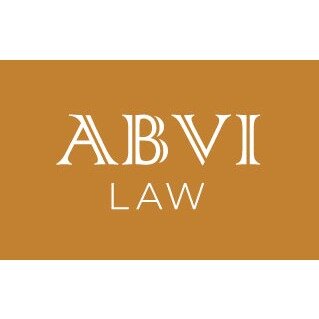Best Landlord & Tenant Lawyers in British Virgin Islands
Share your needs with us, get contacted by law firms.
Free. Takes 2 min.
Free Guide to Hiring a Real Estate Lawyer
Or refine your search by selecting a city:
List of the best lawyers in British Virgin Islands
About Landlord & Tenant Law in British Virgin Islands
Landlord and tenant law in the British Virgin Islands (BVI) governs the rental and leasing relationships between property owners and tenants. The legal framework aims to balance the rights and responsibilities of both parties, ensuring fair and equitable treatment. This area of law covers various aspects, including lease agreements, rent control, eviction procedures, and tenant rights. Understanding these laws is crucial for both landlords and tenants to ensure compliance and protect their interests.
Why You May Need a Lawyer
There are several situations where seeking legal advice in landlord and tenant matters is beneficial:
- Lease Agreements: Drafting or reviewing lease agreements to ensure that terms are clear, fair, and compliant with local laws.
- Dispute Resolution: Addressing disputes related to rent, property maintenance, or lease violations.
- Evictions: Navigating the legal process to evict a tenant or defending against unlawful eviction, which requires a comprehensive understanding of the legal framework.
- Property Damage: Legal support in cases where a tenant or landlord seeks compensation for property damage or loss.
- Rent Control Regulations: Ensuring compliance with local rent control regulations to avoid legal penalties.
Local Laws Overview
The landlord and tenant laws in the BVI are influenced by common law principles and specific legislation that regulate rental housing. Some key aspects include:
- Lease Requirements: While oral agreements may be recognized, having a written lease is strongly recommended for clarity and enforcement.
- Security Deposits: Regulations regarding the collection, use, and return of security deposits to prevent misuse or unfair withholding.
- Rent Increases: Procedures and limitations surrounding lawful rent increases to ensure they are reasonable and justified.
- Fair Eviction Procedures: Legal grounds and notice requirements that landlords must follow before evicting a tenant.
- Tenant's Right to Privacy: Rules regarding landlord entry into rented premises to ensure tenants' privacy is respected.
Frequently Asked Questions
What should be included in a lease agreement?
Essential elements include the property address, lease term, rent amount and due date, security deposit details, maintenance responsibilities, and any restrictions or provisions applicable to the property.
How much notice must be given before a rent increase?
The landlord must provide a reasonable notice period before implementing a rent increase, typically at least 30 days, but this can vary based on the terms of the lease or specific regulations.
Can a tenant withhold rent for repairs?
Tenants may have the right to withhold rent if the landlord fails to make necessary repairs, but legal counsel should be sought to ensure compliance with local laws and avoid potential breach of contract.
What are the legal grounds for eviction?
Common grounds include non-payment of rent, violation of lease terms, or illegal activity on the premises. Proper legal procedures must be followed in each case.
Can a landlord enter the property without notice?
Landlords are generally required to provide notice before entering the rental property, except in emergencies. The specific notice period should be stipulated in the lease.
How can a lease be terminated early?
Early termination of a lease may be possible if both parties agree or if the lease includes a break clause. Legal advice can ensure proper procedures are followed.
Are there rent control regulations in the BVI?
Yes, certain regulations may apply to control unreasonable rent increases. Tenants should familiarize themselves with these to protect against unfair practices.
What happens if a security deposit is not returned?
Tenants can take legal action to recover a wrongly withheld security deposit, often seeking advice from a legal professional to address the issue effectively.
Can a tenant make alterations to the property?
Tenants often require landlord permission for significant alterations. The lease should specify what is allowed and any conditions for making changes.
What support is available for tenants facing eviction?
Tenants can seek legal assistance to understand their rights, negotiate with landlords, or defend against unlawful evictions.
Additional Resources
- Department of Land Registry: Offers information on property ownership and transaction processes.
- Local Legal Aid Clinics: Provide free or low-cost legal advice and services to individuals with limited financial resources.
- British Virgin Islands Bar Association: Offers a directory of qualified lawyers specializing in landlord and tenant law.
Next Steps
If you require legal assistance in landlord and tenant matters, consider the following steps:
- Identify Your Needs: Clearly define your legal issue or concern to communicate effectively with a legal professional.
- Seek Legal Advice: Contact a lawyer experienced in landlord and tenant law to discuss your situation and explore your options.
- Gather Documentation: Collect relevant documents such as lease agreements, correspondence, and receipts to support your case.
- Consider Mediation: Explore alternative dispute resolution methods like mediation to resolve issues amicably without court intervention.
Lawzana helps you find the best lawyers and law firms in British Virgin Islands through a curated and pre-screened list of qualified legal professionals. Our platform offers rankings and detailed profiles of attorneys and law firms, allowing you to compare based on practice areas, including Landlord & Tenant, experience, and client feedback.
Each profile includes a description of the firm's areas of practice, client reviews, team members and partners, year of establishment, spoken languages, office locations, contact information, social media presence, and any published articles or resources. Most firms on our platform speak English and are experienced in both local and international legal matters.
Get a quote from top-rated law firms in British Virgin Islands — quickly, securely, and without unnecessary hassle.
Disclaimer:
The information provided on this page is for general informational purposes only and does not constitute legal advice. While we strive to ensure the accuracy and relevance of the content, legal information may change over time, and interpretations of the law can vary. You should always consult with a qualified legal professional for advice specific to your situation.
We disclaim all liability for actions taken or not taken based on the content of this page. If you believe any information is incorrect or outdated, please contact us, and we will review and update it where appropriate.
Browse landlord & tenant law firms by city in British Virgin Islands
Refine your search by selecting a city.














